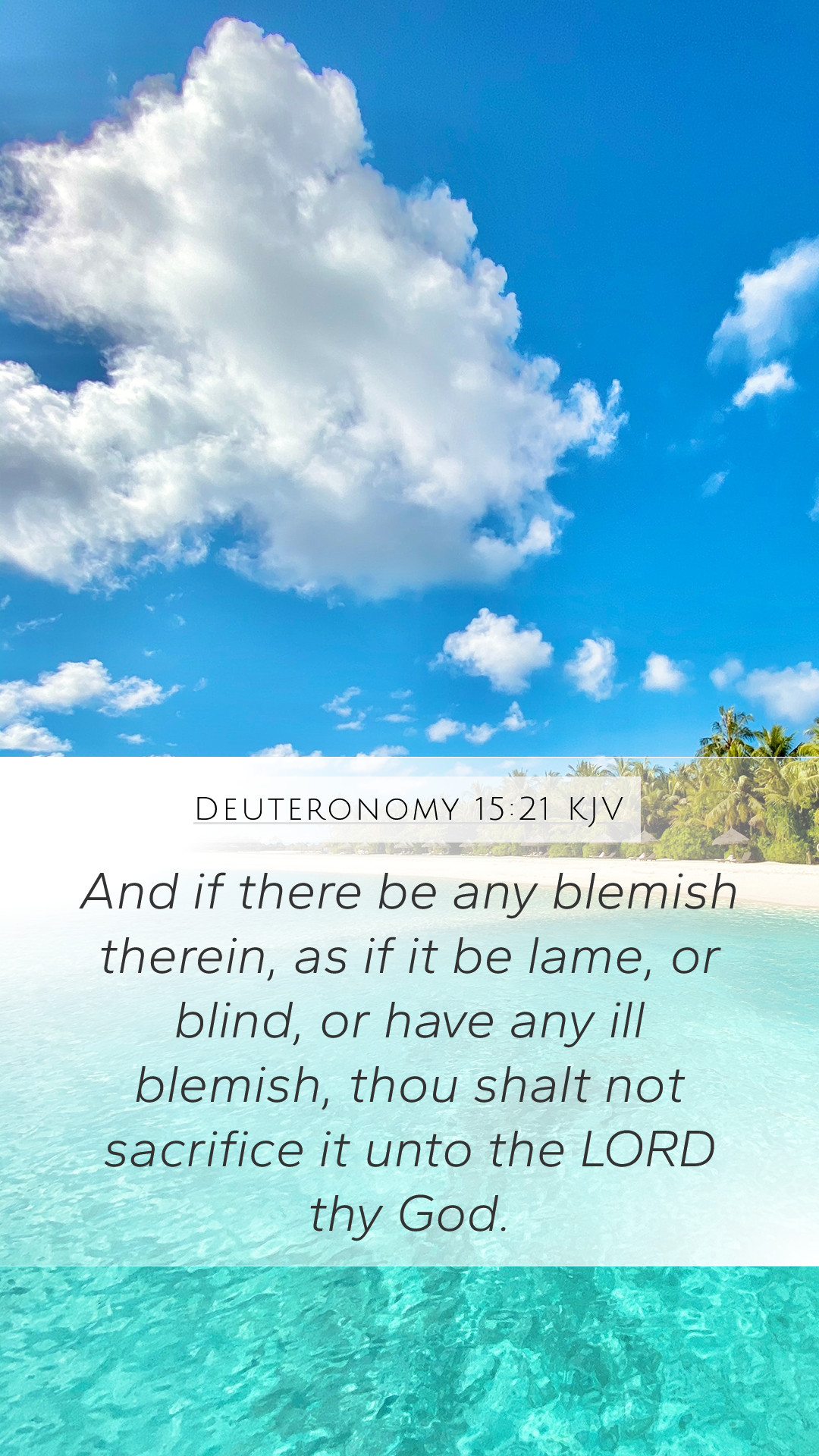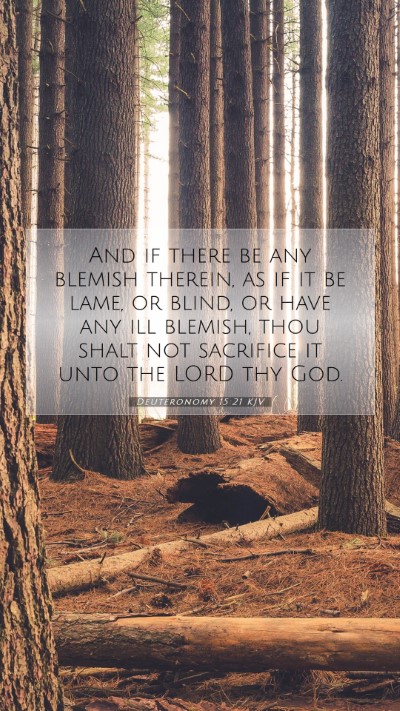Bible Verse Commentary: Deuteronomy 15:21
Verse: Deuteronomy 15:21 - "But if there be any blemish therein, as if it be lame, or blind, or have any ill blemish, thou shalt not sacrifice it unto the Lord thy God."
Understanding Deuteronomy 15:21
This verse provides crucial insight into the type of offerings that are to be presented to God. The focus here is on the purity and perfection of the sacrificial animals, which is a direct reflection of the worshipper's heart and devotion.
Bible Verse Meanings
According to Matthew Henry, this verse emphasizes God’s demand for holiness and perfection in worship. The animals chosen for sacrifice symbolize not just physical offerings but represent the spiritual condition of the giver. Therefore, an animal with blemishes denotes a careless and insincere approach to God.
Albert Barnes interprets this instruction as a component of wider ceremonial laws designed to cultivate reverence for God. Offering a blemished animal may suggest a lack of respect and a misunderstanding of God's holiness.
Adam Clarke suggests that the guidelines for sacrificial offerings were intended to instill a sense of value towards the act of worship. He indicates that giving offerings of great worth is part of honoring God. Hence, a blemished animal was not worthy of being offered, reflecting poorly on the worshipper.
Bible Verse Interpretations
- God demands the best from His people, as an expression of gratitude and recognition of His greatness.
- The blemishes of the animals are symbolic of moral and spiritual imperfections that should not be presented before the Lord.
- This regulation warns against a half-hearted approach to worship, urging believers to examine their contributions and intentions.
Historical Context of Deuteronomy 15:21
The context of this verse lies within the Mosaic Law, where sacrificial practices were central to Israelite worship. The Israelites were called to distinctiveness among the nations and the sacrificial system was pivotal in maintaining their covenant relationship with God.
Applying Bible Verses to Daily Life
Understanding Scripture through these verses encourages believers to reflect on their own lives and the offerings they make to God—not just in material terms but also in spiritual devotion and service. This verse serves as a reminder to present our best before the Lord, whether that pertains to our time, talents, or resources.
Significance of Deuteronomy 15:21
The significance of this verse underlines the idea that God desires sincerity in worship. It teaches that the condition of what we offer reflects our attitudes and commitment towards God. For modern believers, this translates to a call to live with integrity and to ensure that our actions, words, and offerings glorify God.
Bible Study Insights
Engaging in Bible study groups or utilizing Bible study guides can provide deeper insights into verses like Deuteronomy 15:21. A collective discussion often leads to a richer understanding of Scripture, revealing its implications for personal faith and community practice.
Related Bible Cross References
- Malachi 1:6-14 - Discusses the importance of offering the best to God.
- Leviticus 22:20-22 - Clarifies the types of acceptable sacrifices.
- Exodus 12:5 - Highlights the requirement for a lamb without blemish during Passover.
Conclusion
In conclusion, Deuteronomy 15:21 serves as a vital reminder for believers to approach God with sincerity and to present offerings that are worthy of the Divine. Emphasizing the significance of purity in sacrifice parallels in our lives the ongoing need for a heart devoted to God. Through continual biblical exegesis and Bible study resources, believers can deepen their understanding and application of such vital passages.
Further Study Recommendations:
- Participating in online Bible study courses that focus on Old Testament laws.
- Exploring historical context of Bible verses through dedicated research or study plans.
- Engaging with commentary literature to see varied interpretations of sacrificial laws.


